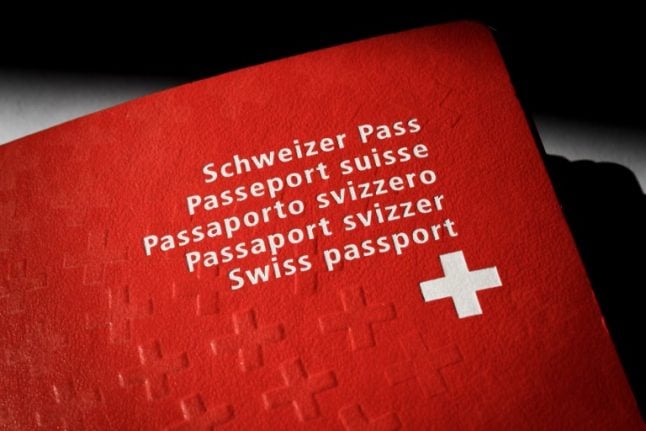Third-generation foreigners are those who were born in Switzerland and may have spent their lives here but who do not have Swiss citizenship because their parents and grandparents did not.
In 2017, the Swiss public voted in a referendum to allow this group to access to facilitated (or simplified) naturalization– a far simpler citizenship process usually reserved for the foreign spouses and children of Swiss citizens.
In February last year, the news rules came into effect.
Read also: How to apply for Swiss citizenship – a guide
However, a new report (here in French) published by the Federal Commission on Migration (FCM) shows just 1,065 third generation foreigners have applied for citizenship under the new rules so far, while 309 have already obtained the Swiss passport.
Eighty percent of applicants came from four countries – Italy, Turkey, Kosovo and Spain, according to the report.
Meanwhile, two thirds of the applications came from just six cantons, five of which are considered to have restrictive citizenship processes (Aargau, St Gallen, Solothurn, Thurgau and Basel).
The report had allowed applicants to sidestep restrictive cantonal policies, its authors said.
Parents school requirement as a legal obstacle
However, the FCM also recognised that the current rules for facilitated naturalisation for third-generation foreigners made it difficult for some applicants – specifically the requirement that they prove their parents had completed five years of compulsory schooling in Switzerland.
Read also: Swiss democracy is failing country's foreign population
The FCM noted that this requirement did not match up to the immigration reality of many of Switzerland’s third-generation foreigners. The commission said that many of these people’s grandparents had come to Switzerland as seasonal workers and had only brought their children to the country when they had secured a residence permit.
As a result, many parents of potential candidates for facilitated immigration had not attended five years of school in Switzerland. However, many had completed professional training here.
The FCM recommended that the rules be changed to reflect this situation, with that professional education being recognised in place of the five years of compulsory schooling.
The commission also called on communes and cantons to do more to encourage third-generation foreigners to take out Swiss citizenship.
A flop?
Geneva newspaper Tribune de Genève labelled the results of the first year of the rule changes a “flop” but the woman behind the initiative, Ada Marra, whose grandparents emigrated to Switzerland in the 1960s, told Swiss news agency SDA she wasn't disappointed at all.
She said the figures indicated that their was “a real need” in cantons with more restrictive citizenship policies.
The military service issue
Under the rules, only third-generation foreigners under the age of 25 can apply for facilitated citizenship. This was a proviso added in by parliament over fears people could shirk their military service obligations by only applying for citizenship after that age – though those currently aged 26-35 will be able to apply if they do so in the first five years of the new system.
Read also: Brit denied Swiss citizenship after 'failing raclette question'



 Please whitelist us to continue reading.
Please whitelist us to continue reading.
Member comments